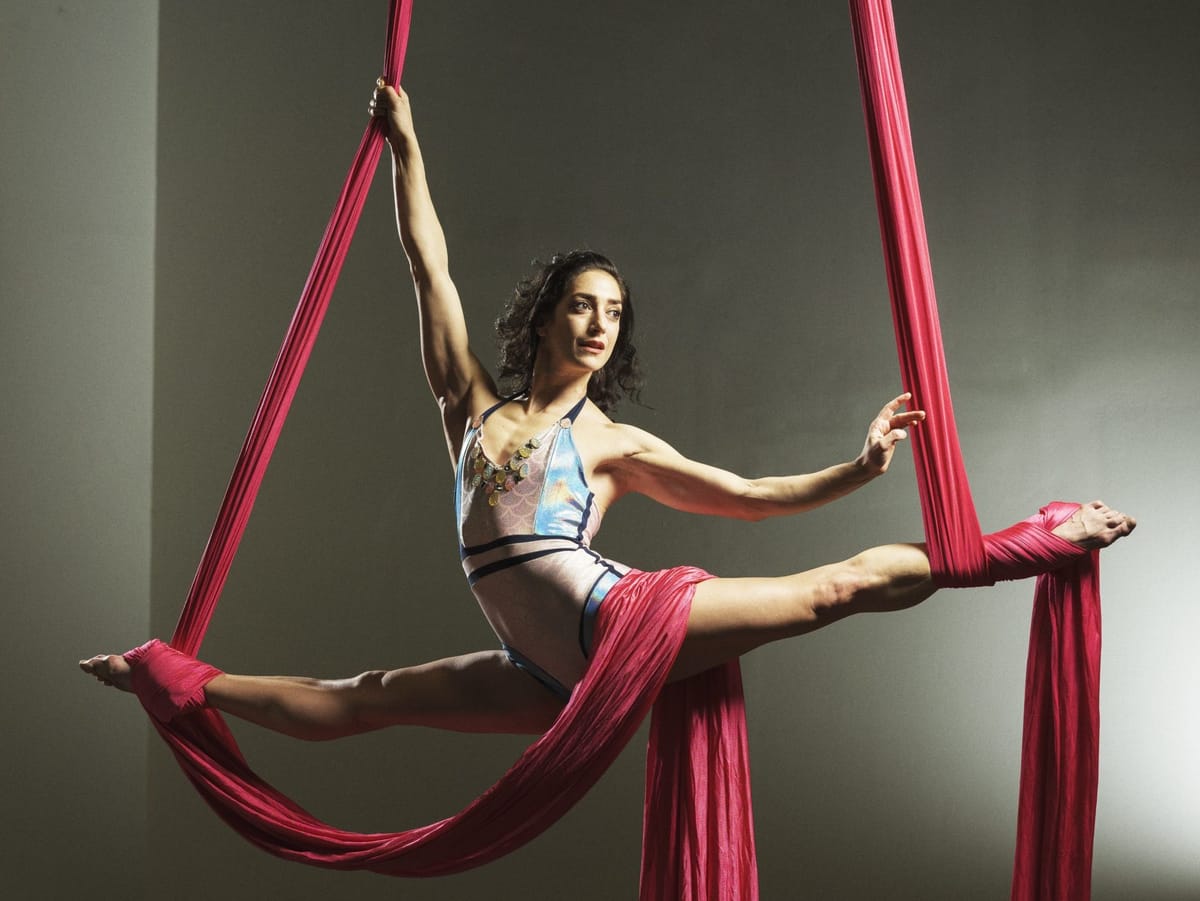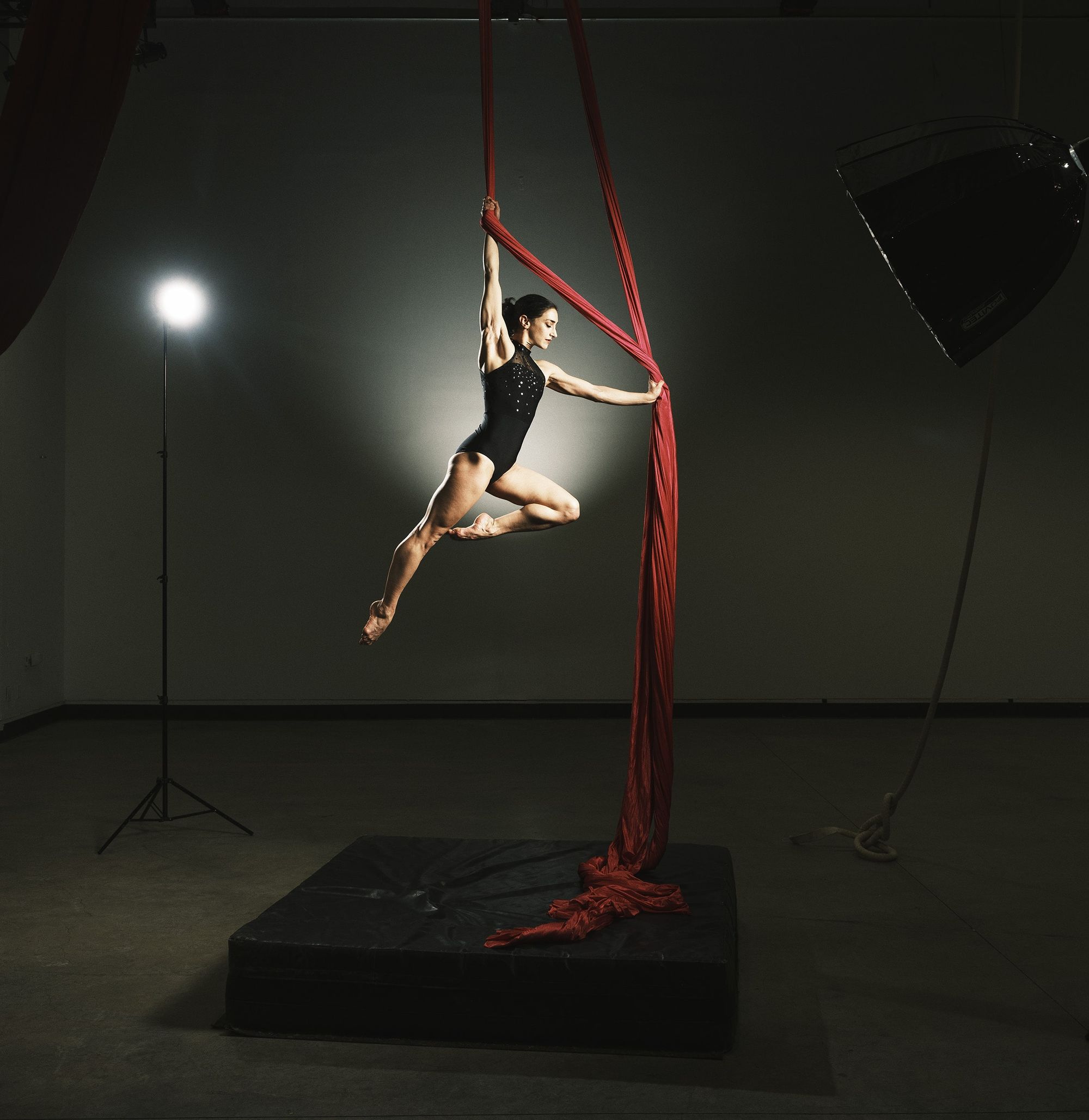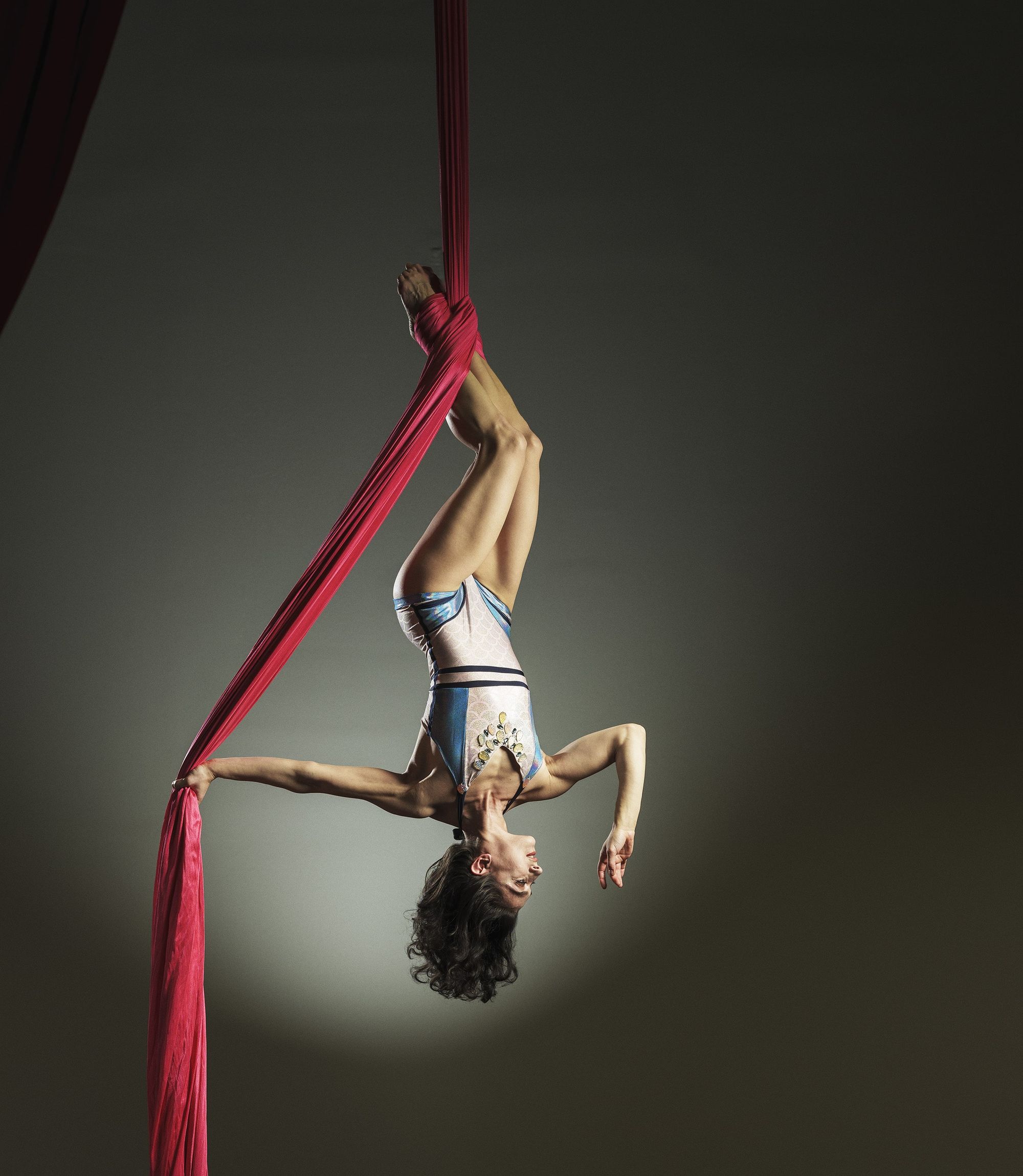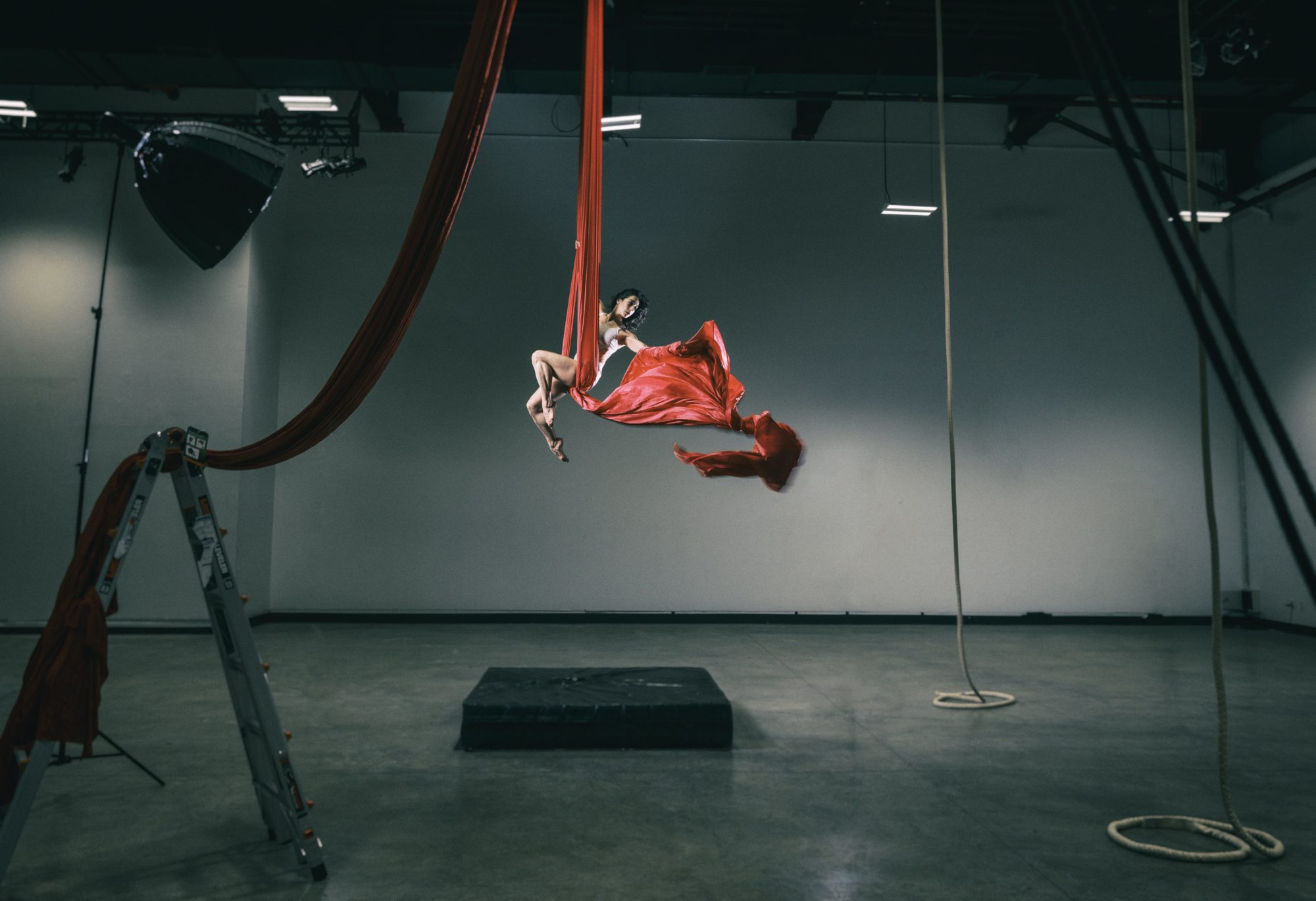A New City Point Residency Gives Aerialists and Acrobats A Chance

For aerialists like Kyla Ernst-Alper, life during the pandemic has felt pretty precarious.

Ernst-Alper, whose job – using her airborne body as a means of visual storytelling – depends on the tight margins of freelance gigs and self-produced shows at clubs and theaters around the city, has always struggled for her art. Before the pandemic, it was a slog to even find adequate practice space; now, with many of the studios that once offered rental space to aerialists and acrobats closed temporarily or permanently, it’s next to impossible.
Limited to training with a free-standing rig in her apartment during the colder months, Ernst-Alper sought something better for herself and the city’s close-knit community of circus performers, a category which includes performers like acrobats and aerialists. Today, in partnership with City Point in Downtown Brooklyn, Ernst-Alper is launching a new, two-month residency that will give aerialists and acrobats the ample space – and height – required to work on their acts. The residency, called Aerialists & Acrobats, will provide the artists with access to City Point’s event space, BKLYN STUDIOS, which offers 13,000 square feet of space as well as 24-foot-tall ceilings.
“I [started] this project because all my friends were depressed, and we had nowhere to train,” Ernst-Alper told Bklyner over the phone.
Typically the city’s aerialists are given access to free or discounted training space in exchange for teaching classes, Ernst-Alper explained. Since the pandemic started, of course, that resource has dried up. Many training spaces are no longer accessible: Long Island City’s Circus Warehouse, one of the city’s largest circus training facilities, has closed its doors temporarily; the space at circus school The Muse in Bushwick, which became open-air during the pandemic, is no longer a viable option as temperatures have dropped.

“The physical things that you’re doing, with extreme temperatures, it’s very easy to get injured,” said Juanita Cardenas, one of the new residents, as well as a friend of Ernst-Alper’s. “Things are very slippery, you can’t properly ever warm up – it’s very easy to pull something.”
Ernst-Alper had sustained a shoulder injury herself while trying to train in the cold. “I was just like ‘I can’t do this,’” she said. “And I can’t imagine going through the entire winter without having access to the height.”
Because aerialists and acrobats perform almost entirely in mid-air, their training requirements are extremely specific.
“The thing about training for aerial is, it’s not just like you go to a gym and do sit-ups or whatever,” said Cardenas. “You have to be able to climb and be comfortable at thirty feet or twenty feet, or hang, or do things that are specific to our practice that can’t be replicated anywhere else.”

When Ernst-Alper pitched the idea of a residency to the City Point team several months ago, many of her fellow aerialists saw it as a long shot.
“It seemed a little bit like a pipe dream,” said Elizabeth Munn, another resident and friend of Ernst-Alper (the city’s circus community is fairly tight-knit, Ernst-Alper explained, meaning most performers know each other).
“I can’t tell you what a gift it is to have this residency at City Point,” said Munn. “It’s just unbelievable to be in this safely rigged, warm space, with our community, just making work and training and revisiting some things that we had to leave behind before the pandemic.”
Most of the people in their community are woefully under-resourced, said Ernst-Alper. “If I were to tell you what we were paid before the pandemic, you would be shocked that we were even getting by, living in New York City.”
Aerialists haven’t been able to rely on support from the government throughout the pandemic, Ernst-Alper said, leaving them to seek support from the private sector. “We’re all just kind of shocked that City Point has been so supportive and so generous.”

In addition to the help from City Point, performers who are fortunate enough to have a day job or extra income – like Ernst-Alper herself, who also does production and choreography for projects like Estee Lauder’s Supreme 2021 campaign – have pooled their money in order to support the performers who lack those resources. For example, Ernst-Alper explained, City Point’s only requirement for the residency is that performers provide their own insurance, for which the more financially secure residents have put together an anonymous group fund.
That supportive ethos is widespread throughout the circus arts community, Cardenas explained. “It’s not about having a million dollars,” she said. “It’s about sharing what you have to allow those that may have a little bit less – but may have something else to contribute – to participate in the conversation.”
To help support the artists, Ernst-Alper is accepting donations via the Venmo account @kygwen.
The residency takes place from January 8th to February 28th, and is free for the public to view from a bank of windows in the City Point main passageway, accessible by entrances at 445 Albee Square West and 336 Flatbush Avenue Extension. COVID-19 regulations will be strictly enforced. Showcases take place on Thursdays at 7pm and Sundays at 12pm; rehearsals take place on weekdays from 9am to 1pm and 6pm to 9pm, and on Sundays from 10pm – 7pm.



